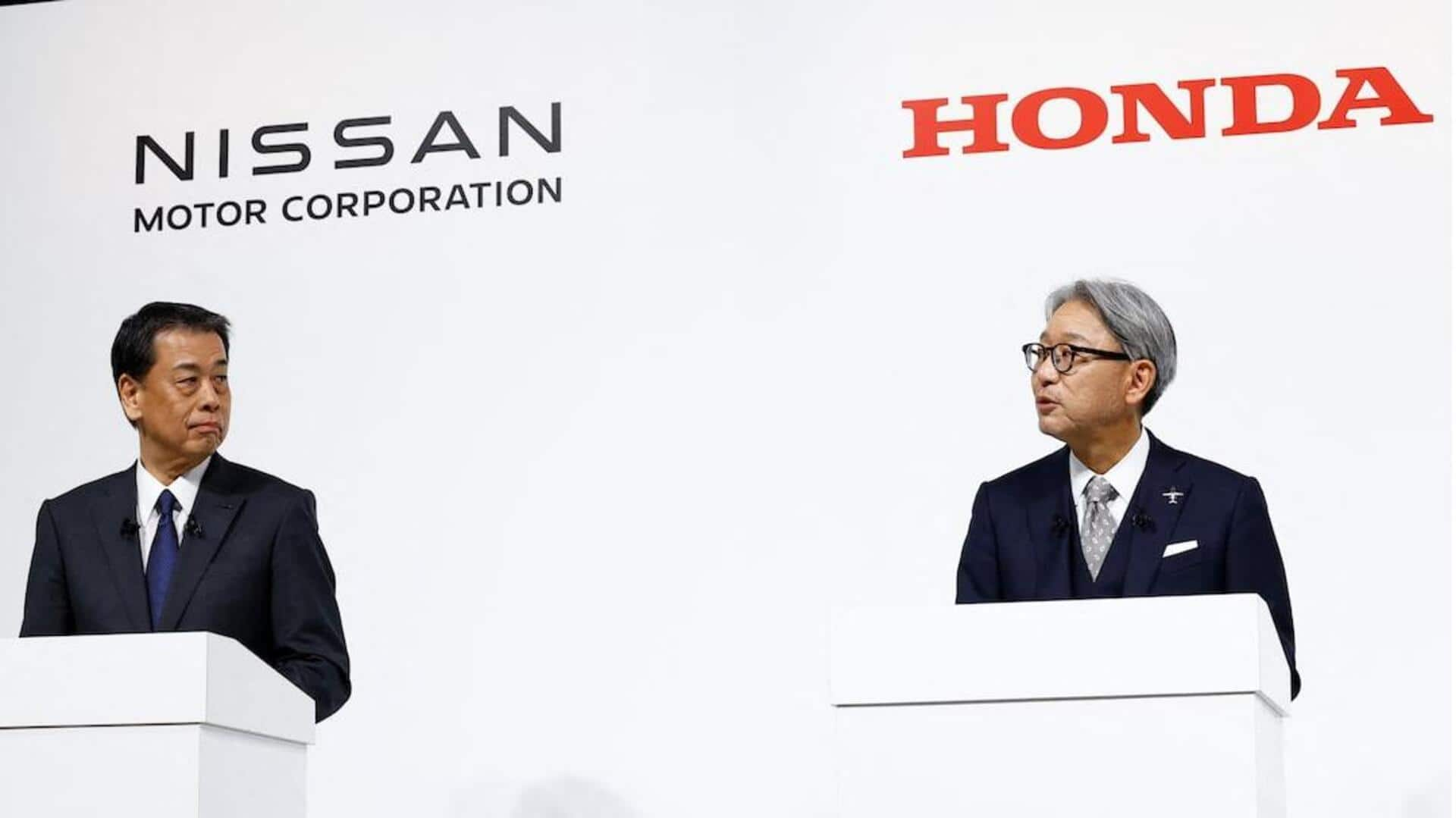
Honda and Nissan cancel $50B merger plan: What went wrong?
What's the story
Honda Motor and Nissan have called off their $50 billion merger talks, a move that would have resulted in one of the world's largest auto conglomerates.
Back in December, the two Japanese automotive giants had announced plans to merge their operations. The main objective was to share costs and develop next-generation vehicles together.
However, both companies confirmed on Thursday that they have decided to discontinue these talks.
Merger complications
Internal resistance and financial concerns
The merger talks between Honda and Nissan weren't without challenges.
Honda's top executives faced internal opposition to the idea of merging with another car manufacturer.
There were also concerns about Nissan's financial stability as it is currently restructuring its operations after a significant drop in profits.
These worries led to doubts about the potential benefits of such a deal, further complicating the merger discussions.
Merger fallout
Honda's proposal and Nissan's rejection
In a decisive move, Honda had proposed a plan to make Nissan its subsidiary.
However, Nissan rejected the offer as it deviated from initial ideas of forming a holding company with both brands as subsidiaries.
Nissan's leadership believed that this proposal undervalued their company, leading to further disagreements in the merger talks.
Potential partnership
Foxconn shows interest in Nissan
In the wake of the merger talks fallout, Taiwanese electronics giant Foxconn has shown interest in Nissan.
Foxconn Chairman Young Liu said on Wednesday that his company is willing to acquire Renault's 36% stake in Nissan or even partner with the automaker.
The development could pave a new path for Nissan as it finds its way in the fast-evolving automotive industry.
Changing landscape
Industry shifts prompt reevaluation of auto alliances
The abrupt termination of the merger talks underscores a growing realization in the automotive industry.
It indicates that mega auto alliances, once viewed as a means to grow and dominate the market, may not be the best answer to rapid technological evolution.
Legacy carmakers in Japan, US, and Europe are struggling with heightened competition from new entrants such as Tesla and China's BYD.
The latter have taken a considerable lead in EV technology and semi-autonomous driving capabilities.
Industry collaborations
Past partnerships and future challenges
As the auto industry progresses toward more tech-savvy cars, past partnerships have been a mixed bag.
Ford Motor and Volkswagen had partnered on EVs and self-driving but later scrapped their self-driving car program.
Honda had also collaborated with General Motors to manufacture two electric SUVs, the Honda Prologue and Acura ZDX.
However, in 2023, they revealed that the partnership wouldn't go beyond these models.